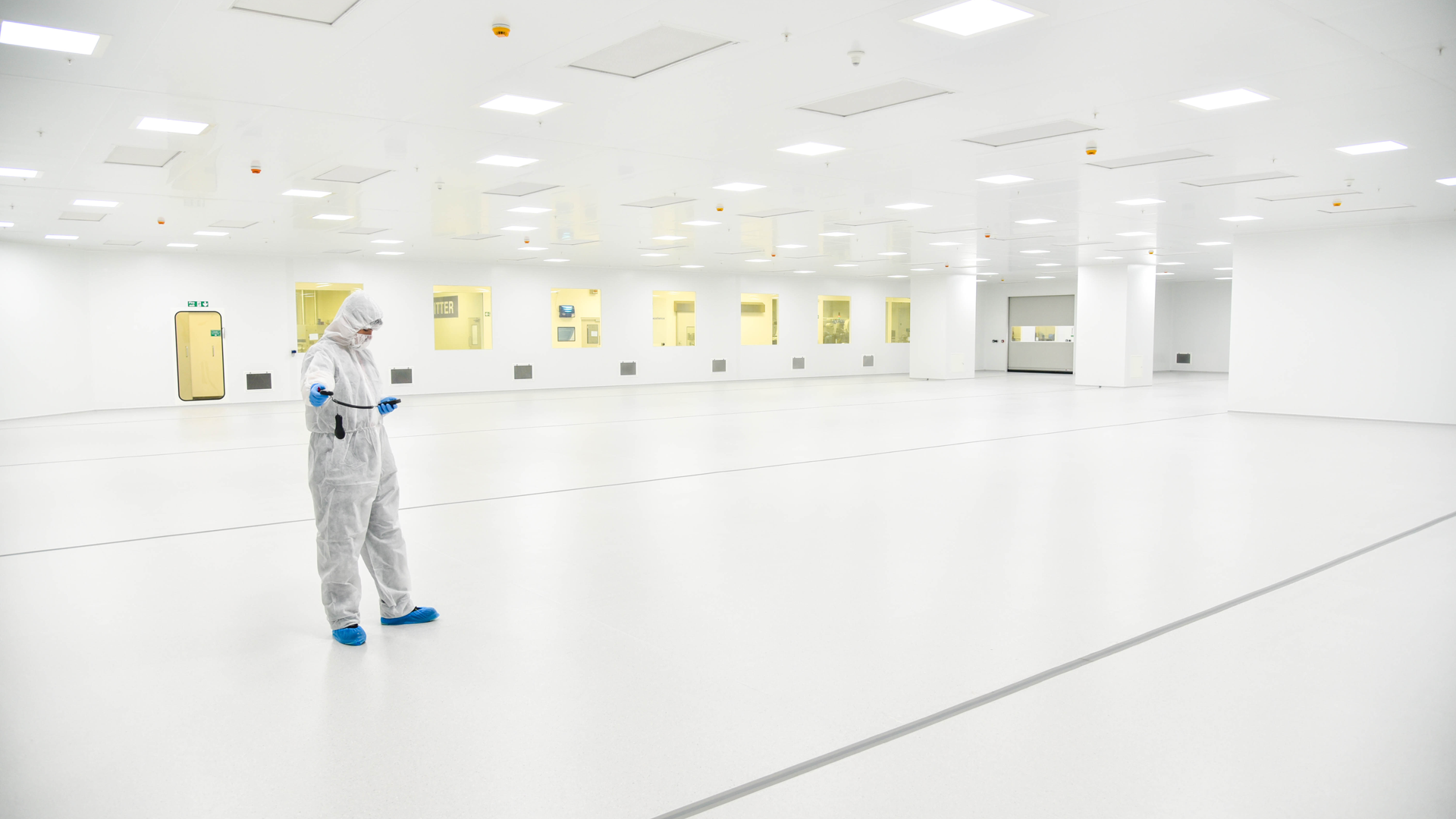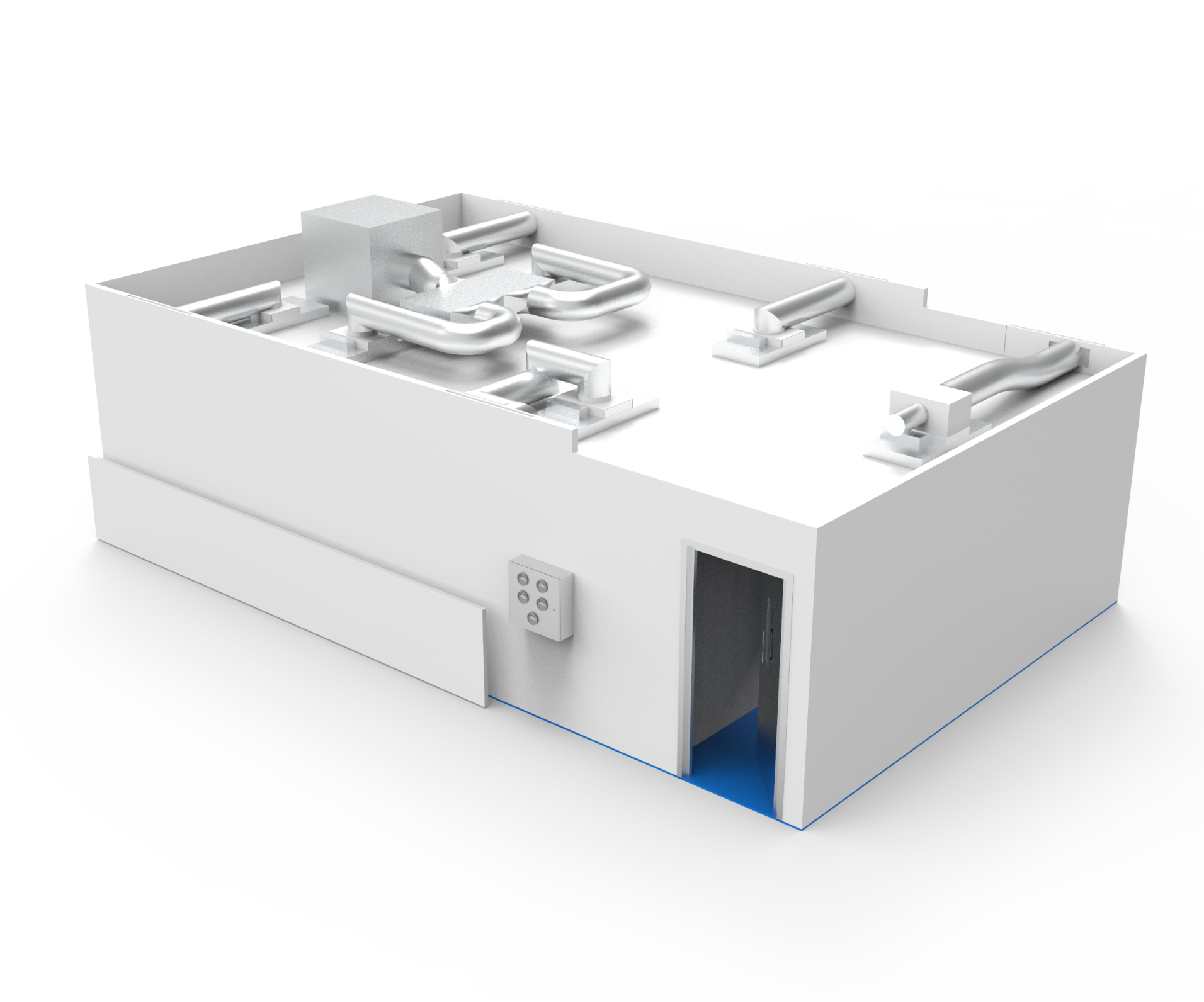Cleanroom Classifications
Discover the different cleanroom classifications within the cleanroom ISO standards and their Federal Standard and GMP equivalent. These tables detail the particle counts that define each ISO or GMP class.

ISO 14644-1:2015 Cleanroom Classifications Chart
ISO 14644 is the international standard for cleanrooms and associated controlled environments. Part 1 details the classification of air cleanliness by particle concentration.
This table details the air cleanliness classes by particle concentration within ISO 14644-1.
| ISO Classification Number | Maximum allowable concentrations (particles/m3) for particles equal to and greater than the considered sizes, shown below | |||||
|---|---|---|---|---|---|---|
| ≥0.1µm | ;≥0.2µm | ≥0.3µm | ≥0.5µm | ≥1µm | ≥5.0µm | |
| ISO Class 1 | 10b | d | d | d | d | e |
| ISO Class 2 | 100 | 24b | 10b | d | d | e |
| ISO Class 3 | 1,000 | 237 | 102 | 35b | d | e |
| ISO Class 4 | 10,000 | 2,370 | 1,020 | 352 | 83b | e |
| ISO Class 5 | 100,000 | 23,700 | 10,200 | 3,520 | 832 | d,e,f |
| ISO Class 6 | 1,000,000 | 237,000 | 102,000 | 35,200 | 8,320 | 293 |
| ISO Class 7 | c | c | c | 352,000 | 83,200 | 2,930 |
| ISO Class 8 | c | c | c | 3,520,000 | 832,000 | 29,300 |
| ISO Class 9g | c | c | c | 35,200,000 | 8,320,000 | 293,000 |
a All concentrations in the table are cumulative, e.g. for ISO Class 5, the 10,200 particles shown at 0.3µm include all particles equal to and greater than this size.
b These concentrations will lead to air sample volumes for classification. Sequential sampling procedure may be applied.
c Concentration limits are not applicable in this region of the table due to very high particle concentration.
d Sampling and statistical limitations for particles in low concentrations make classification inappropriate.
e Sample collection limitations for both particles in low concentrations and sizes greater than 1µm make classification at this particle size inappropriate, due to potential losses in the sampling system.
f In order to specify at this particle size in association with ISO Class 5, the macroparticle descriptor M may be adapted and used in conjunction with at least one other particle size.
g This class is only applicable for the in-operation state.
What are the particle limits for EU GMP Grades?
Maximum permitted total particle concentration for classification by GMP grade
GMP Annex 1 details the maximum permitted particle concentrations for classification, for ‘at rest’ and ‘in operation’ states.
Clean room and clean air device classification, in relation to GMP Annex 1 (2015).
| Grade | Maximum limits for total particle ≥0.5µm/m³ | Maximum limits for total particle ≥5.0µm/m³ | ||
|---|---|---|---|---|
| At rest | In operation | At rest | In operation | |
| A | 3,520 | 3,520 | Not specifieda | Not specifieda |
| B | 3,520 | 352,000 | Not specifieda | 2,930 |
| C | 352,000 | 3,520,000 | 2,930 | 29,300 |
| D | 3,520,000 | Not predeterminedb | 29,300 | Not predeterminedb |
a Classification including 5µm particles may be considered where indicated by the CCS or historical trends.
b For grade D, in operation limits are not predetermined. The manufacturer should establish in operation limits based on a risk assessment and routine data where applicable.
What is the GMP grade equivalent of ISO classes
Comparison of Cleanroom Classifications
The ‘at rest’ limits for GMP, correspond with the limits for ISO classes.
This table below shows the ISO classes with the equivalent GMP grades. It also details the equivalent Federal Standard class.
| Cleanroom Standard | Cleanroom Classification Guidelines | |||||
|---|---|---|---|---|---|---|
| ISO 14644-1 | Class 3 | Class 4 | Class 5 | Class 6 | Class 7 | Class 8 |
| EU GMP (at rest) | – | – | A/B | – | C | D |
| Federal Standard 209E (replaced in 2001) | 1 | -10 | 100 | 1,000 | 10,000 | 100,000 |
The Federal Standard class was replaced by ISO 14644 in 2001.


START A PROJECT WITH US
Our design and build specialists have experience working with customers in all kinds of industries on a global scale, achieving great results time and time again. We’d love to work with you as well!
REQUEST A QUOTE